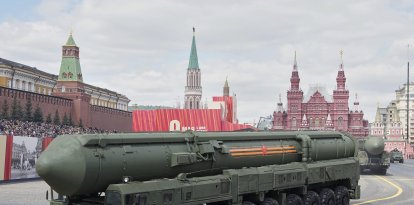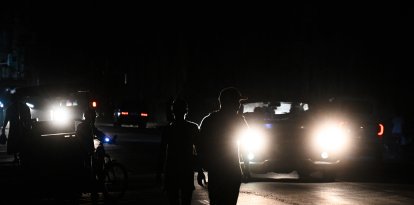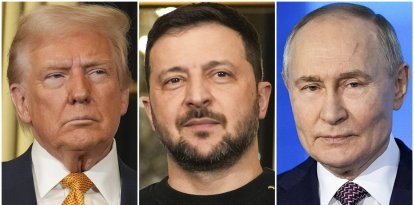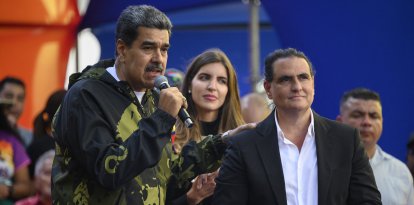Georgia approves controversial 'Foreign Agents Law': a nod to Putin?
The country's government says that it only seeks “transparency” in the financing of media and nonprofit organizations. The president, an opponent of the ruling party, opposes the measure and fears that it is a first step toward a new Russian invasion of her country.

Salomé Zourabichvili, presidente de Georgia, se opone a la ley (Wikimedia Commons)
Georgian Parliament Speaker Shalva Papuashvili signed the Foreign Agents Law Monday, which has sparked widespread division in the country and a wave of protests in recent weeks in which at least 20 protesters, including two Americans, were arrested.
Critics say the law, approved by lawmakers in May, is intended to replicate Russian measures against freedom of expression and would significantly reduce Georgia's chances of joining the European Union. According to the opposition, these types of measures are already applied in Russia and have given Russian President Vladimir Putin an excuse to persecute dissent.
According to the law, media outlets, NGOs and other nonprofit groups, whose funding depends at least 20% on other countries, must register as “pursuing the interests of a foreign power.”
Georgian President Salomé Zourabichvili, leader of the Georgia Path party, which is increasingly at odds with the ruling party Georgian Dream, had tried to veto the bill, but the Parliament, controlled by the ruling party, managed to override the president's veto.
Recently, Zourabichvili said that with the measure, called a “Russian law” by the opposition, Georgian Dream intended to hinder her country's path to becoming a full member of the free and democratic world. Furthermore, in statements made for the program "60 Minutes" on CBS last year, the president expressed that Russia was waging a "hybrid war" against Georgia, using televised and online disinformation campaigns.
However, Papuashvili maintained that the reform only seeks to apply a minimum standard of "transparency" and condemned the "blackmail" and "the avalanche of lies and hatred" that come from abroad.
Zourabichvili fears that Russia will invade Georgia with the excuse of protecting the approximately 100,000 Russians living in the country, since Putin used a similar excuse to launch his war against Ukraine.
It should be remembered that Russia invaded Georgia on Aug. 7, 2008, which led to an armed conflict that ended on Aug. 16 of the same year, during which Moscow had the support of the self-proclaimed pro-Russian republics of South Ossetia and Abkhazia, which officially lie within Georgian borders.
"It's very unnerving when, in your own country, you have people who are talking the language of the enemy and that believe that they're at home," Zourabichvili told "60 Minutes" last year.
Georgian Prime Minister Irakli Kobakhidze rejected criticism of the new law and called for acting “pragmatically, with a cool mind and put aside unnecessary emotions.”
The European Union stated that the approval of the new law “negatively impacts” Georgia's chances of joining the E.U. Likewise, U.S. Secretary of State Antony Blinken threatened last month, after the law was passed, to impose travel sanctions on officials who are “responsible or complicit in undermining democracy in Georgia.” He added that he hopes the Georgian government will change course.
Is Russia seeking to make Georgia another Belarus?
It is no secret that the governments of Russia, led by Vladimir Putin, and Belarus, chaired by Alexandr Lukashenko, are close allies. In fact, according to the Council of Foreign Relations (CFR), Minsk's complicity in the current Russian invasion of Ukraine has strengthened the ties between both regimes and has brought their unequal alliance one step closer to full integration.
The CFR adds that Lukashenko, Belarus's long-time post-communist leader, has turned the country into what human rights watchdog Freedom House called a “consolidated authoritarian regime” and one of the least democratic states in the world. Its growing alignment with the Russian president bodes ill for the democratic and economic aspirations of the Belarusian people and raises serious new security concerns in Europe.
Furthermore, according to a document accessed by The Dossier Center via Russian oligarch and exiled opponent Mikhail Khodorkovsky, Russia formulated a plan in 2021 to “absorb” Belarus in 2030.
According to the plan, the Kremlin intended to adapt Belarusian legislation to Russian legislation, manage the republic's foreign policy in the interests of Russia, increase the military presence on the territory of Belarus, achieve the supremacy of the Russian language in the country and give Russian citizenship to Belarusians.
According to The Dossier Center, in addition to harmonizing trade and economic relations, Russia planned to establish control in the political-military sector of Belarus by 2030.
It should be noted that the presence of troops on Belarusian soil was increased in 2021 with the excuse of carrying out joint military exercises, which meant the prelude to the start of the war in Ukraine on Feb. 24, 2022.
Given the situation in the region, which combines Putin's imperialist actions with the submission of some governments to the Kremlin, it is not surprising, therefore, that there are serious concerns in Georgia and in much of Europe.
























